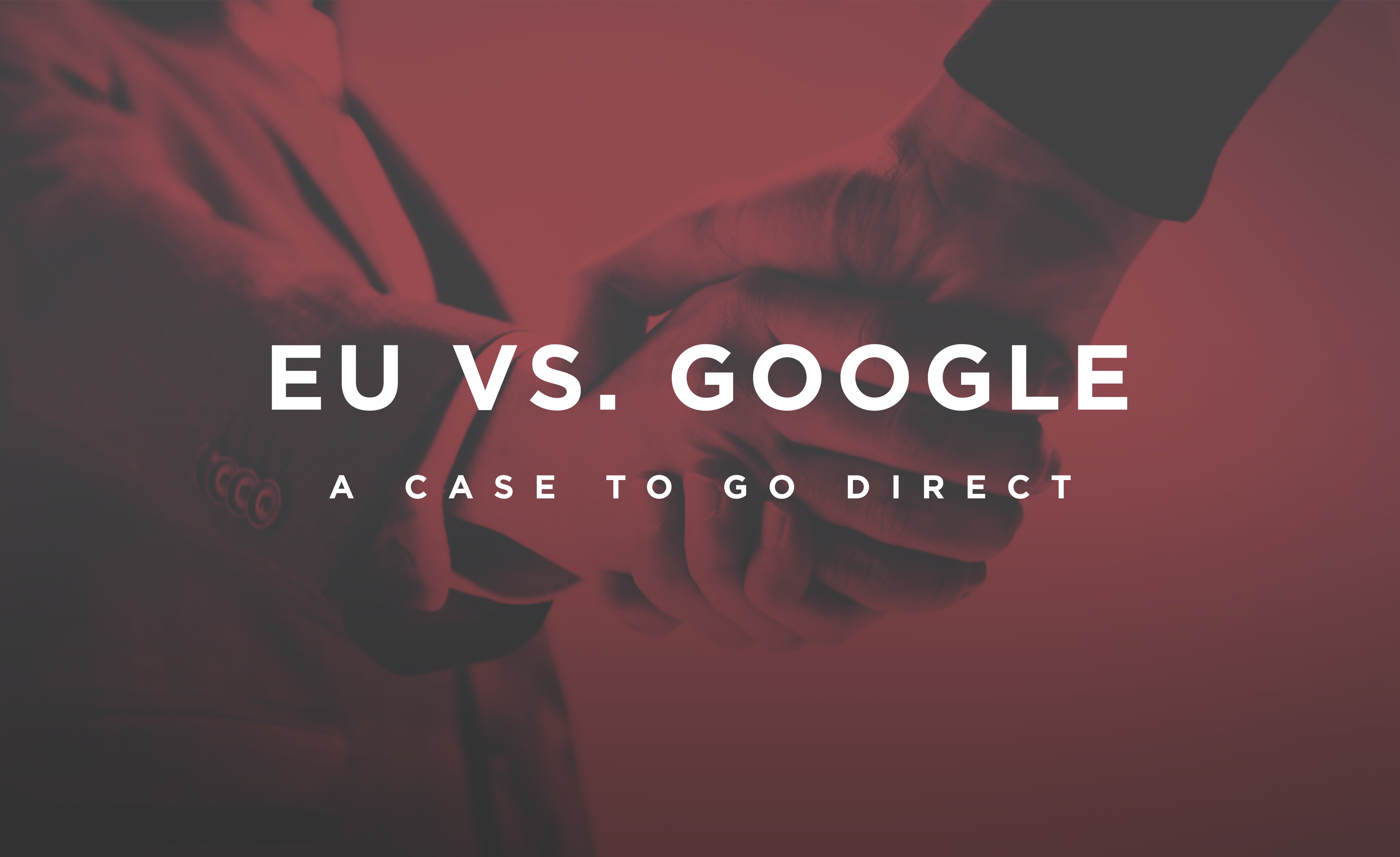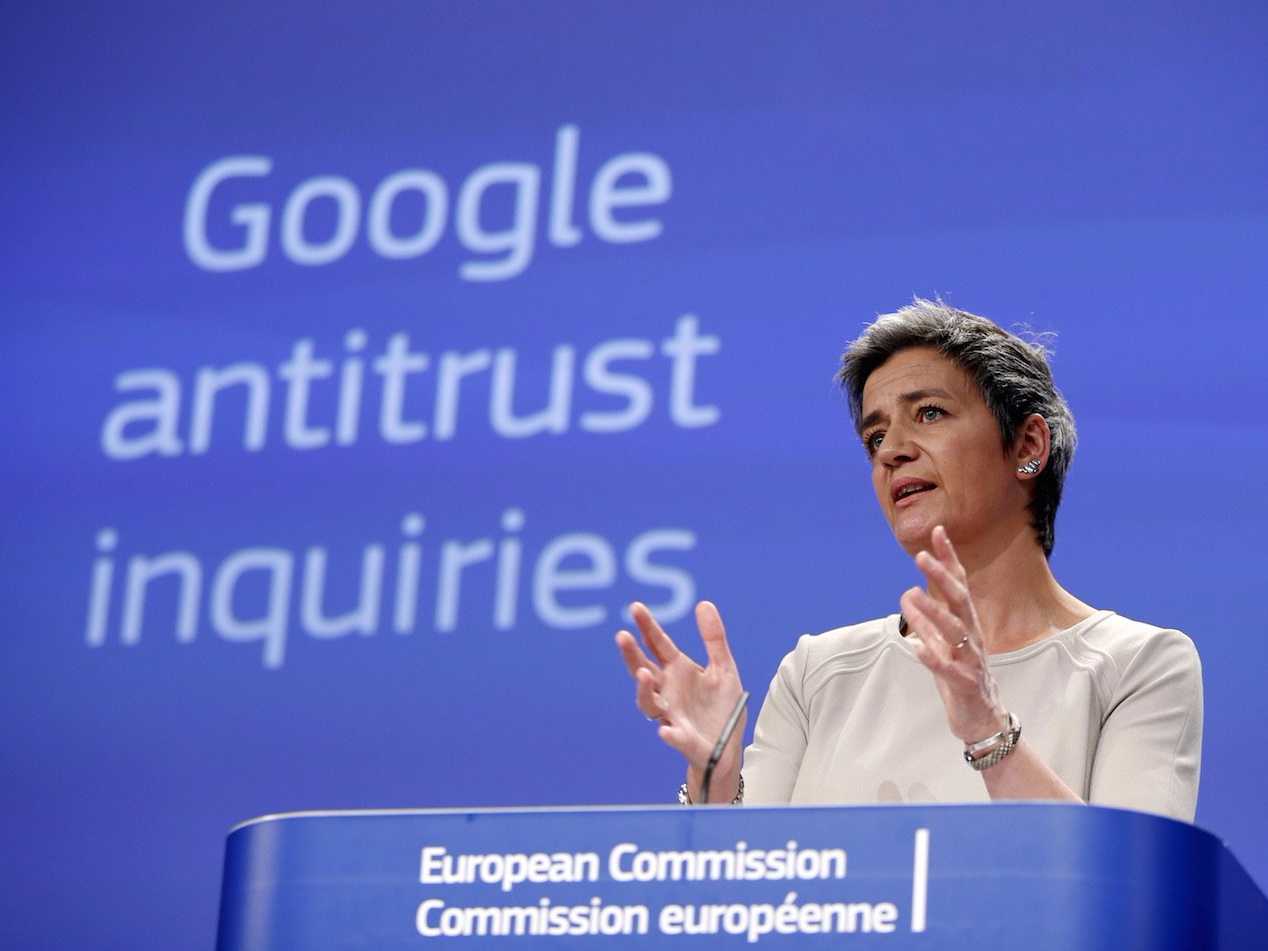
See why top ecommerce brands use Miva’s no-code platform to run
multiple stores, manage massive catalogs, and grow their revenue.
The European Union slapped Google with a record €2.42 billion fine ($2.7 billion U.S.) for violating E.U. antitrust rules. E.U. antitrust chief Margrethe Vestager says the tech giant abused its dominance in the search engine market to prioritize its own online shopping service. And though the Google antitrust case—and its effects—are currently isolated to the E.U., the implications echo to any business owner vying to compete in a highly competitive online market.
Catch up with the E.U. antitrust case against Google below and then dive into how you can leverage the lessons from this unfolding case to your business’ advantage.
“Google has abused its market dominance in its search engine by promoting its own shopping comparison service in its search results and demoting its competitors,” said E.U. competition chief Margrethe Vestager to reporters in Brussels this past Tuesday.
“What Google has done is illegal under E.U. antitrust rules. It has denied other companies the chance to compete on the merits and to innovate. And most importantly, it has denied European consumers the benefits of competition.”

E.U. competition chief Margrethe Vestager speaks about the Google antitrust case in Brussels. (Business Insider)
Vestager’s announcement follows a seven-year investigation into Google’s trade practices, with other related cases still underway. The commission analyzed nearly 1.7 billion search queries and found that Google’s search algorithm featured its own comparison shopping service, harming competitor services.
By placing their own product ahead of rivals, the commission states Google saw the following success:
Traffic to Google’s comparison shopping service increased significantly as a result of their illegal practices—up to 45-fold in the UK. On the other hand, the commission discovered competitor sites felt sudden drops of traffic: from 80% in France, to 85% in the UK, up to 92% in Germany. The rival services adapted and managed to recover—though never in full.
Google senior vice president and general counsel Kent Walker issued a statement minutes after the E.U. announcement. In it, Walker claimed the company’s shopping site helps both consumers and advertisers.
“When you shop online, you want to find the products you’re looking for quickly and easily. And advertisers want to promote those same products,” said Google senior vice president and general counsel Kent Walker.
“That’s why Google shows shopping ads, connecting our users with thousands of advertisers, large and small, in ways that are useful for both. We respectfully disagree with the conclusions announced today,” Walker said. “We will review the Commission’s decision in detail as we consider an appeal, and we look forward to continuing to make our case.”
The European Commission mandated that Google open up its shopping search results to competitors. If the company does not abide by the judgment within 90 days, it could face penalties of up to 5% of the daily worldwide turnover of corporate parent Alphabet Inc., which boasted $90.7 billion in turnover last year.
In addition, the commission holds preliminary findings that Google abused its dominant position in two other cases, which are still under investigation.
The first case involves the Android operating system, which the commission believes has “stifled choice and innovation” in a variety of mobile apps and services by “pursuing an overall strategy on mobile devices to protect and expand its dominant position in general internet search”.
In a second case on AdSense, a service which allows brands to run targeted ads, the commission is concerned that Google has stopped search ads from competitors to be sourced.
Today the findings from the European Commission may be isolated to those companies in the European Union—but how does this affect your store? Local or global, the unfolding antitrust case holds implications for every online business.
“Whenever you have an entity manipulating search results, suggesting their own products or advocating preferred providers without disclosure, it can be a big concern for any store owner trying to establish their business in an already competitive online space,” said Nes Lopez, Account Manager at Miva, Inc.
“Once you start to add up missed opportunities where Google favors their listing over others, Miva, or any ecommerce store, could start to feel affected. This could directly result in loss of sales and loss of revenue.” -Nes Lopez, Account Manager, Miva, Inc.
Though we have yet to hear of search results manipulated to the detriment of companies here in the U.S., ecommerce store owners are advised to stay ahead with the following:
From a big-picture view, the Google antitrust case further establishes the need to drive your ecommerce presence, your way.
“Owning your ecommerce presence and knowing your customer base is now more important than ever, to control that direct experience.” -Benjamin Arp, Solutions Architect, Miva, Inc.
“[The Google antitrust case] speaks to the importance of diversifying your traffic services. As a business owner, you can never rely solely on any one advertising source to feed your pipeline.”
Back to topNo worries, download the PDF version now and enjoy your reading later...
Download PDF Miva
Miva
Miva offers a flexible and adaptable ecommerce platform that evolves with businesses and allows them to drive sales, maximize average order value, cut overhead costs, and increase revenue. Miva has been helping businesses realize their ecommerce potential for over 20 years and empowering retail, wholesale, and direct-to-consumer sellers across all industries to transform their business through ecommerce.
Visit Website